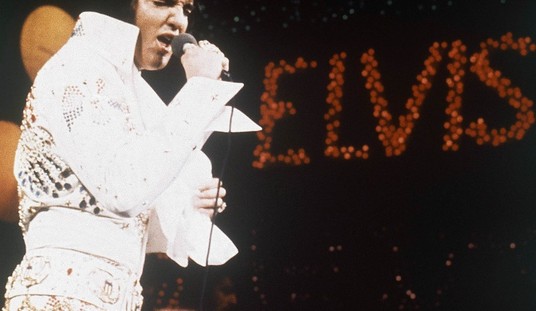Big tech firms like Yahoo, Facebook and Ebay are worried about a possible power grab by global interests seeking to seize control of the internet.
This is more than just an arcane, technical concern that only affects a few of us. What is going on right now with domain naming by the Internet Corporation for Assigned Names and Numbers (ICANN) should set off alarm bells in Congress and motivate the rest of us to get informed about the issues involved.
It’s no secret that authoritarian nations like China and Russia wish to implement changes to make the Internet subject to more control and oversight by government. They now have an ally in ICANN’s CEO Fahi Chehade, who plans to add thousands of domain suffixes to the traditional “com,” “net,” and “org.”
The Internet Corporation for Assigned Names and Numbers (ICANN), led by its CEO Fadi Chehade, last year began rolling out thousands of alternatives to the traditional .com ending used by most websites. New endings using the Latin alphabet, such as .clothing and .singles, became available in January, and hundreds of others are on the way.
ICANN says it is focused on making the Internet more broadly available and has prioritized creating domain names in languages such as Chinese, Arabic and Cyrillic.
But critics say the nonprofit betrayed broader ambitions last year when it endorsed a statement calling for the globalization of ICANN and other domain name technical work that is currently managed by the United States.
By signing the statement, Chehade put “a target on ICANN’s back,” said Steve DelBianco, executive director of NetChoice.
“ICANN is not at the center of Internet governance,” said DelBianco, whose group represents companies such as Facebook, Yahoo and eBay.
The statement, which was issued with nine other Internet infrastructure organizations, suggested that the domain work of the Internet Assigned Numbers Authority (IANA) be handed over to ICANN. Those duties are now contracted out by the Commerce Department.
Some in the tech industry saw the statement as a direct challenge to the U.S. role in Internet governance, which is already being called into question after the revelations about global snooping at the National Security Agency (NSA).
Rep. Anna Eshoo (D-Calif.), who represents Silicon Valley, declined to comment specifically on Chehade’s plans, but said the U.S. should retain leadership over how the Internet is managed.
The U.S. “gave birth” to the Internet, Eshoo said, and countries “with a different view” should not be allowed to regulate it.
“I don’t want to go there. I don’t want to see that,” Eshoo said during an upcoming episode of CPSAN’s “The Communicators.”
DelBianco said members of Congress needs to start scrutinizing ICANN’s activities. For starters, the committees that oversee the Commerce Department should question ICANN’s calls for a globalized IANA.
“Capitol Hill should have something to say about it,” he said.
“If it ain’t broke, why fix it?” To governments like China and Russia, the internet is broke — or, at least not working they way they want. For the rest of us, the absolute freedom represented by the internet in all its glory, crudity, obscenity, and banality — it’s doing just fine, thank you.
The question before us is, in the name of “democratizing” the internet, do we take a step backward into the darkness, where governments control our access and our content? I would feel a lot better if the people doing the “democratizing” were, like, you know, democratically inclined. They’re not. And worming their way into power by seeking control of internet domain naming is just the first step in the process of putting governments in the internet drivers seat.
David Inserra of the Heritage Foundation has a couple of suggestions on how to keep the internet free:
▪ Maintain a firm commitment to engage with the Internet governance organizations. Since the status quo Internet governance organizations have specific roles and operate via consensus, it is critical that the US maintain its strong voice in these organizations. ICANN may soon become completely independent of the US government, but the US must ensure that ICANN maintains a system of governance that does not empower those nations that oppose a free Internet.
▪ Reject ITU control of the Internet. The ITU ultimately serves the majority of nations which do not want a free and open Internet. The US must build a coalition of freedom-loving nations and traditional Internet governance non-profits to reject ITU regulation of the Internet.
The future of the internet really hangs in the balance. That may sound melodramatic, but the forces working against a free internet are powerful and appear to be gaining ground.
As US influence in the world wanes, opportunities for the oppressors rise. If our government seems powerless to act, perhaps it’s time we did.









Join the conversation as a VIP Member